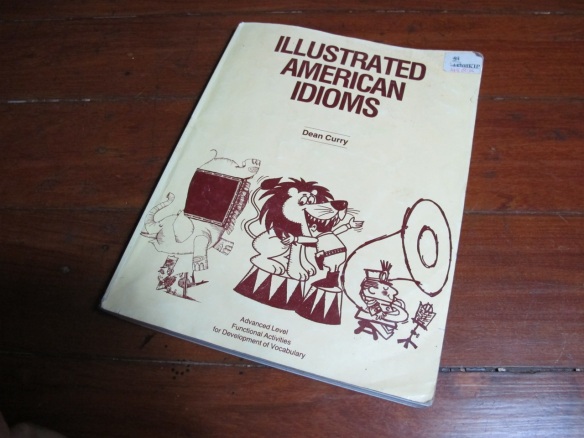Today I put on my scientist hat for a decidedly unglamorous task. I spent a number of hours poring over data sheets and referencing them with a database, making changes on the computer where our intern had noted discrepancies between the written and the typed data. There is nothing like tedium to drive you to reflection.
I admit, I can appreciate my share of mindless, repetitive tasks. You can’t beat ‘em for that satisfying feeling of productivity. What else could have powered me through dissecting 1,000+ fish stomachs for my master’s thesis? Even data checking itself is a somewhat comforting and familiar zone, in which I also spent many an hour of grad school. But sometimes, now as then, this kind of work makes it hard for me to keep my eye on the end goal. What’s the point?, I wonder. What’s the value in how I spent my day? How is this work meaningful?
These data I’m wading through are from the village fishing survey project that I helped organize last fall – which has been one of the most challenging and rewarding projects I’ve worked on at FISHBIO so far (and which I have yet to write about…). And if I still want to call myself a scientist, I can’t just drop in for all of the “fun” parts of doing research. It can’t all be just hanging out with the fishers, holding workshops, going out on boats, taking pictures of pretty fish, and drinking Beer Lao – as much as I’d like it to be. (I once told someone that my dream of being a science writer was to tag along for all of the hands-on field science, then play with fun ways to communicate it while the scientists wrestled with analyzing the data. “That’s cheating!” he said. Is it?) But I don’t want to just pay lip service to this science, I want to be able to say I really understand it – and mean it. So I have to be willing to dive into the frustrating minutiae of the nitty gritty. It’s part of piecing together a bigger picture that will only be as accurate as every pixel that makes it up – every fish length, every net size, every fishing time.
So now that means trying to make sense of all of the information we asked ten fishermen to collect for three months – and at the most basic starting point, it means making sure we’ve cataloged all of that data as accurately as possible. I’m learning small things along the way: how to decipher Lao handwriting, how to translate the difference between “didn’t catch fish” and “didn’t go fishing,” understanding how fishermen measure the height of their nets in the number of mesh holes, not in meters.
It’s easy to get impatient – how is this leading me toward my goal, down my dragon fish path? I find myself wanting the pay-off now – I want to be an expert, a credible source of information, I want to be making a real difference in conservation and help people understand and care about this complex and fascinating setting that I’m just learning to understand myself. Staring down a few massive binders of datasheets sure forces you to take the long view. I’m trying to learn as much as I can in a new environment, which takes time. I’m building my confidence, which comes with experience, which takes time. I’m still on the path. But I have to pay my dues, and I have to earn it.
Today my Lao coworker was leafing through his dog-eared copy of “Illustrated American Idioms” from 1982 – a gem I found buried in the closet yesterday while trying to make an inventory of our books. It’s quite the slice of American culture – illustrated in the style of ClipArt. Someone has turned it into a coloring book, probably before Sinsamout came to own it. He flipped to the phrase “big fish in a small pond” and asked me what it meant. I said it’s like feeling important in your small village, then coming to the big city, being surrounded by lots of accomplished people, and realizing you don’t really know very much. Naturally, this also introduced the concept of a “small fish in a big pond.” Actually, the book listed the phrase as “big frog in a small pond,” which I had never heard of – so we both learned something.
Today I definitely find myself relating to the small fish (frog?). And I often think I’m swimming in two very big ponds – one called science, the other called storytelling. I’m trying to paddle my way through both of them, realizing I have a lot to learn about being one small fish among many. Humility. Patience. Letting go of ego. Finding reward from the work, not the recognition. This path that I’m on is the work of a lifetime. So as a wise fish once said, just keep swimming, just keep swimming…




Hi Erin, In my mind you are definitely not a big fish in a small pond but, more appropriately, a big fish in ANY pond. Hope the work is going well even the tedious parts. Love, Grandma
This is so true.
Love the post.
-Dena
you are a wise woman, erin. your ruminations about meaning and paths forward resonate with my thoughts too. i think being a small fish isn’t so bad…it means that you always have something to learn from others. but small fish can have a big influence too – just think sardines… 🙂
Thanks for the encouragement! Sardines – I love that! There’s something a bit more collaborative about being a small fish too – which is essentially part of what we’re trying to do in our work here, get lots of different researchers to work together.